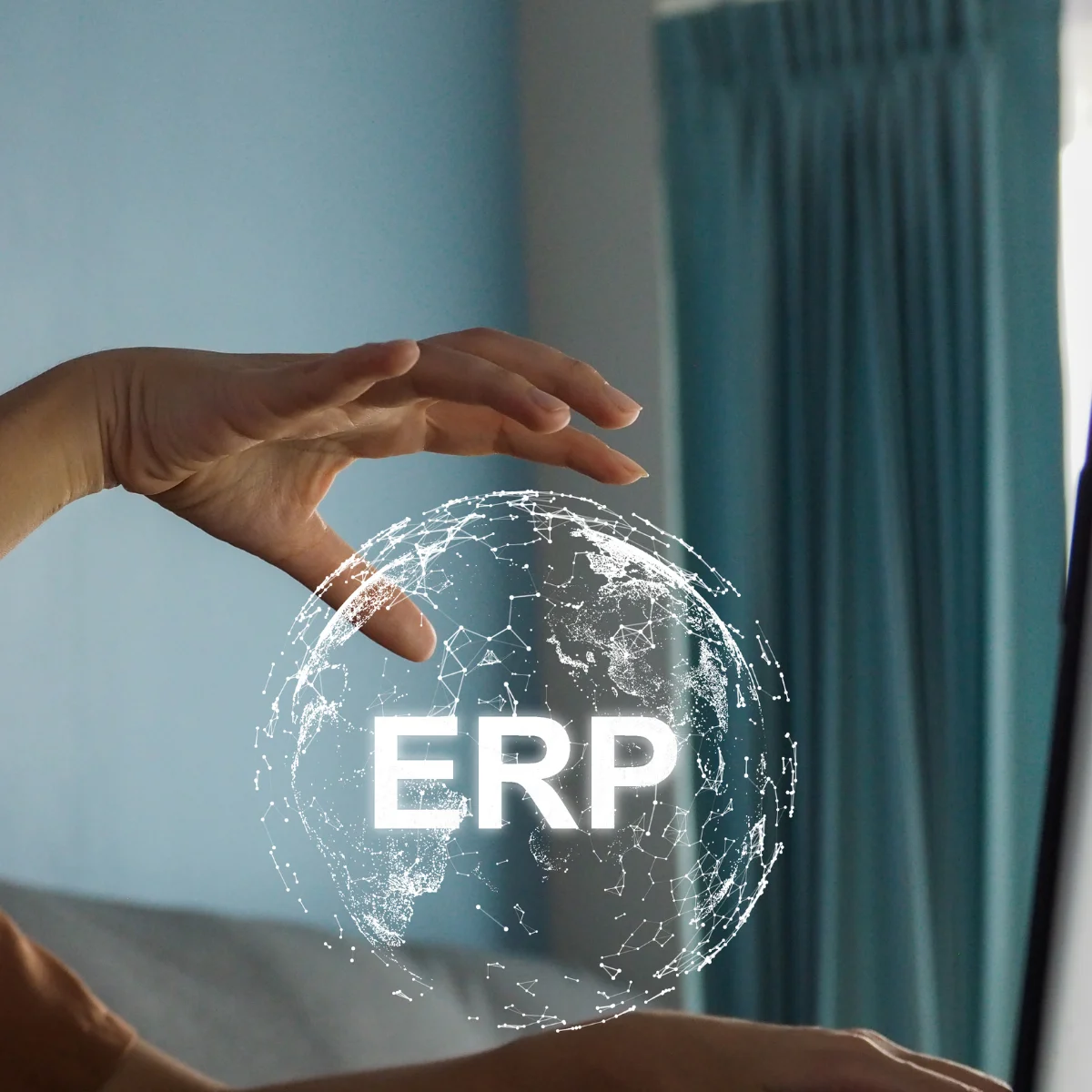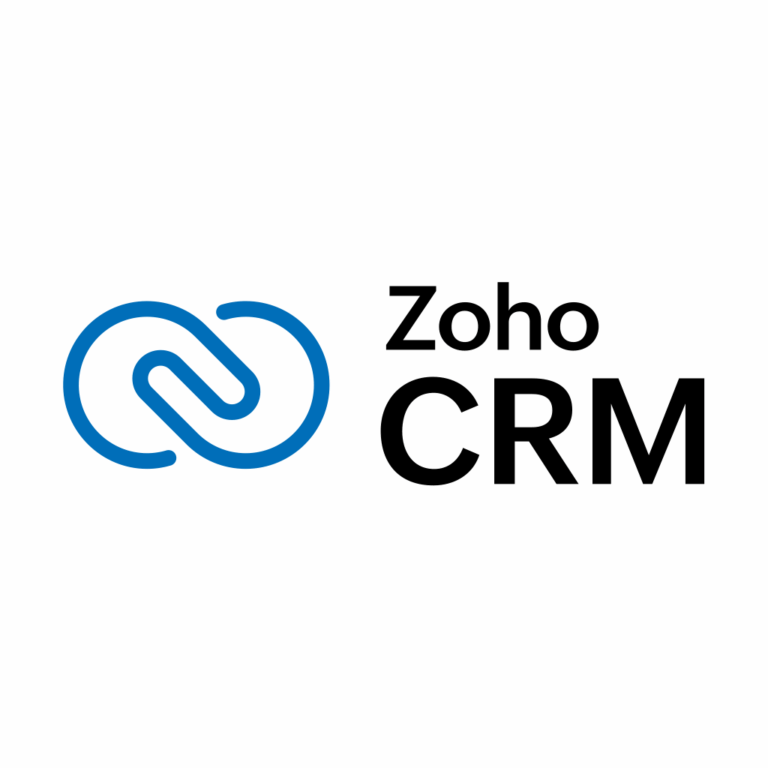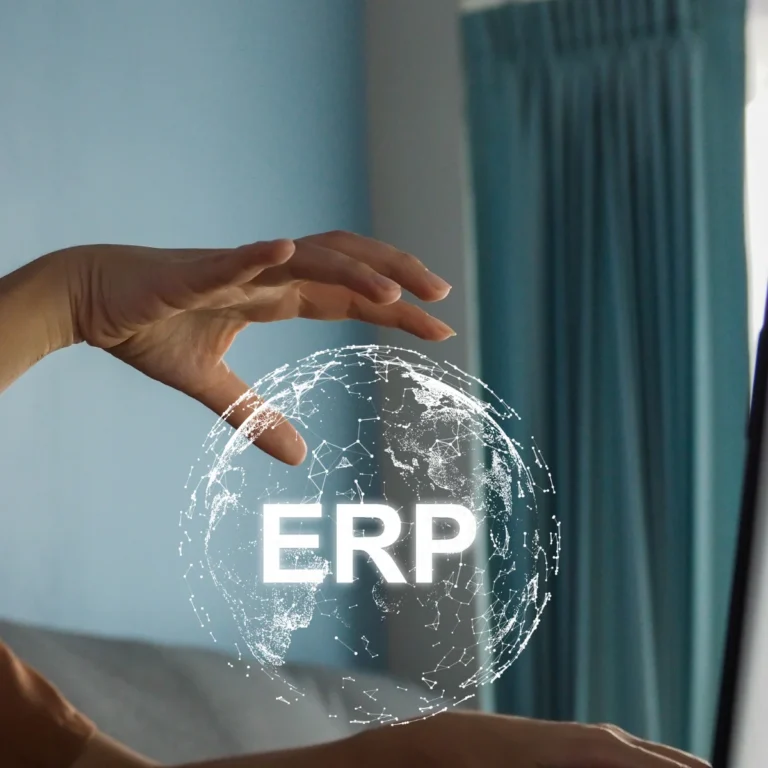Picture this. You walk into the office. Your sales numbers are live on your dashboard. Inventory? Auto-updated. Payroll? Already processed. No back-and-forth emails. No late-night Excel madness. Just smooth, clean operations.
That’s what ERP solutions in Dubai are making possible.
We’re not talking futuristic tech. This is happening right now in retail, healthcare, real estate, and logistics. Everyone’s catching on. If your business still runs on scattered systems or manual work, you’re already falling behind.


So what’s the deal with ERP?
Enterprise Resource Planning. Sounds heavy, huh? But it’s just one smart system that connects all your core departments, including finance, HR, supply chain, and CRM. Everything you need to run your business. All in one place.
No more “I’ll check with accounts” or “HR has the file.” It’s all there. Live. Synced.
Let’s be real. Dubai moves fast. Clients don’t wait. Deadlines don’t bend. The market? Always shifting. You can’t afford messy workflows. You need real-time data. You need control.
And that’s exactly what ERP gives you.
But wait. So many ERPs out there.
You’ve probably heard of the big players, SAP ERP UAE, Microsoft Dynamics UAE, and Oracle ERP UAE. Solid options. But not every tool fits every team.
So the real question isn’t “which is best ?”
It’s: “Which is best for you?”
A small retail shop in Karama? You might need a cloud-based ERP with easy inventory syncing.
A logistics firm in Jebel Ali? You’ll need something heavier, maybe with real-time fleet tracking and advanced procurement modules.
A real estate company juggling contracts and lease terms? You’d want automation in legal and project milestones.
See what I mean? Different businesses. Different beats. Different ERP needs.
Let’s talk about the benefits.
ERP helps you cut the noise. Literally.
Think about all those hours spent tracking inventory, fixing payroll errors, and digging through scattered reports. Gone.
Instead, you get:
- Clean dashboards
- Centralized data
- Faster reports
- Zero duplication
- Way fewer mistakes
Also? It scales. You grow, it grows.
And it’s compliant. Like, UAE VAT laws? Built-in. End-of-service calculations? Sorted. The stuff you usually dread doing? Handled.
True story: A UAE retail chain rolled out ERP across 12 stores. Within 6 months, inventory errors dropped by 40%. They didn’t change staff. Just their system.
Cloud ERP or On-Premise?
Now this part gets people confused. So let’s simplify.
Cloud ERP?
No hardware. Lower upfront cost. Remote access from anywhere. Great for SMEs and fast-moving teams. You just log in and go.On-premise ERP?
You host it. More control. More security. But a bigger investment. And you’ll need in-house IT support. Works well for industries with strict data compliance needs.
Most SMEs in Dubai? They go to the cloud. Makes sense. It’s nimble, affordable, and updates itself.
What should ERP do?
Okay. So what features do you need? At the bare minimum:
- Finance module: Budgeting, reporting, VAT, invoicing
- HR: Leave, payroll, onboarding
- Inventory: Stock tracking, reordering, supply chain
- CRM: Track leads, manage customers
- Analytics: So you stop guessing and start knowing
Also, look for automation. Let the system do the boring bits. That’s the real win.
Industry-specific ERP in Dubai? That’s a thing, too.
Retail? You’ll want point-of-sale sync, billing automation, and demand forecasting.
Real Estate? Contract management, project timelines, and RERA compliance tools.
Manufacturing? Procurement tracking, vendor scoring, and quality control workflows.
Your ERP should speak your business language.
Quick stat: 85% of UAE businesses saw lower costs within the first year of ERP implementation. That’s not fluff. That’s a fact.
Choosing an ERP in the UAE.
It’s a big move. And once it’s in, you’ll be using it for years. So don’t rush. Here’s what matters:
- Know what your team struggles with
- Make a list of must-have features
- Decide on cloud vs. on-premise
- Check if it integrates with what you already use (like Zoho, Salesforce, etc.)
- Think long-term, not just what works now, but what’ll work when you grow
- And seriously… get a demo.
Pro tip: Get your department heads involved. Don’t let IT or finance pick it alone. Everyone needs to vibe with it.
So what’s next?
ERP is evolving fast. AI. IoT. Smart dashboards. Predictive analytics. Stuff we only dreamed of five years ago is becoming standard.
The UAE is pushing digital transformation big time. With government backing and local vendors customizing solutions for regional needs, this is your window to jump in.
Forecast: The ERP market here is on an upward track, expanding at roughly an 8% pace year after year. That’s a wave you wanna ride.
Final thought.
ERP won’t fix a broken product. Or save you from a bad business idea.
But if you’ve got a good thing going? ERP can take it to the next level.
Faster workflows. Better decisions. Less chaos. More profit.
You in? Get your demo. Test the waters. And see how ERP solutions in Dubai can change the way you work for good.












